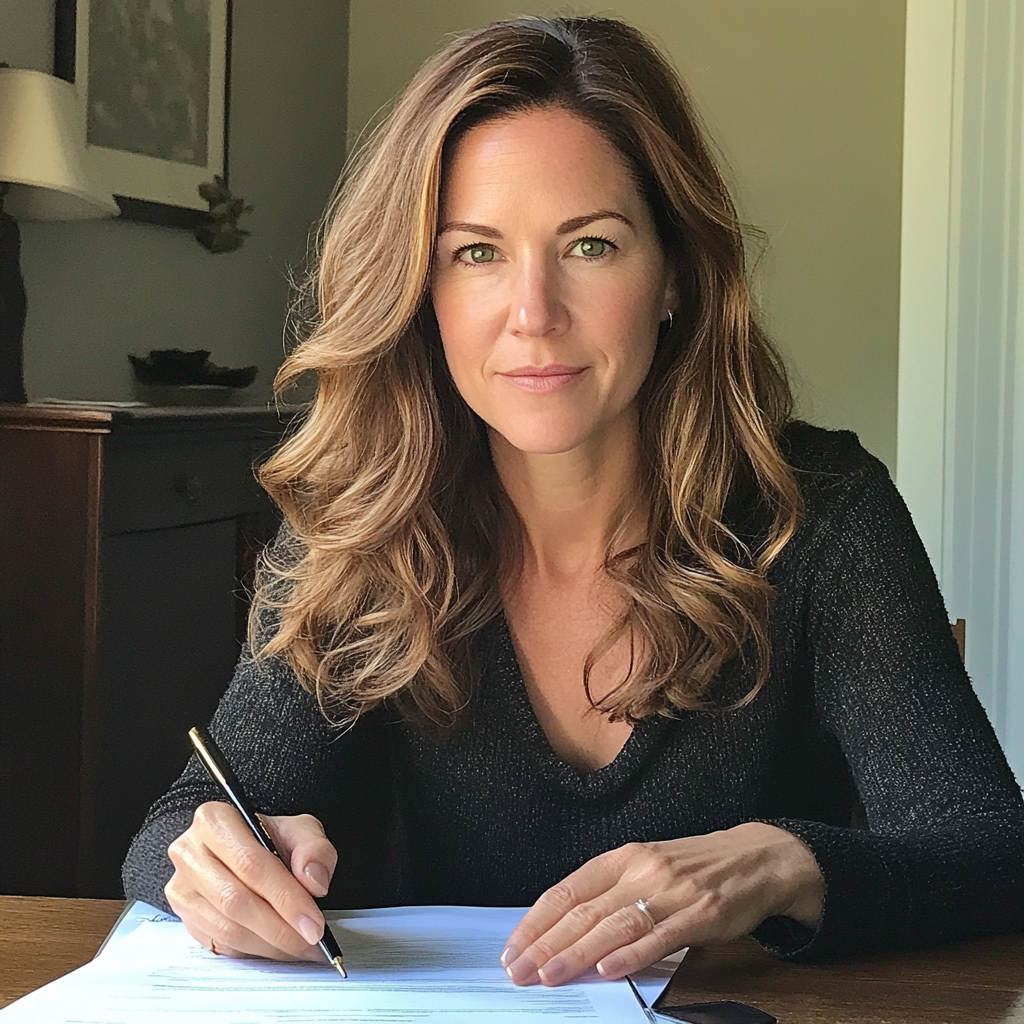Hunter McGrady is known as Sports Illustrated Swimsuit’s “curviest model ever.” But this milestone and other achievements weren’t enough to keep haters away. Now, she speaks about how she deals with them.
Meet Hunter McGrady.
Hunter McGrady is an American model and body positivity advocate renowned for her work in the fashion industry. Her breakthrough moment came in 2017. She was selected through an open casting call to appear in the Sports Illustrated Swimsuit Issue, making her debut as one of the magazine’s curviest models ever. This achievement marked a significant step in her career and highlighted her commitment to challenging conventional beauty standards.
McGrady’s influence extends beyond modeling. She is a vocal advocate for mental health, self-love, and body diversity. Through interviews, social media, and public appearances, she encourages people to embrace their bodies and reject unrealistic societal expectations.
The pivotal moment of her life.

McGrady’s career began as a model at the age of 15, during which she faced significant pressure to maintain a size two, leading to personal struggles with body image and self-acceptance. In a recent interview, she remembered that once she grasped the fact that being a slim fit wasn’t going to be her journey, she let herself live and be happy. Over time, she transitioned to plus-size modeling, finding her niche and voice in promoting body positivity and inclusivity within the fashion world.
It wasn’t an easy journey.

The Los Angeles native admitted that the road to acceptance was long, but therapy played a crucial role in her journey to self-love. She emphasized the importance of appreciating what our bodies can do rather than focusing on societal pressures to look a certain way.
“I think what Sports Illustrated is doing — celebrating all bodies — is so powerful. They’re doing the work. Especially right now when we’re entering this weird era, celebrating thinness,” McGrady noted.
But she keeps receiving negative comments about her body.

“No matter what you do, you’re going to get hate,” McGrady shrugged. “But you’re also going to get love. Negative comments or anybody who shames someone about their body? That’s so boring. Get something better to talk about.”
She emphasizes that criticism and negativity are inevitable, but so is support and appreciation. For McGrady, the act of body-shaming is tiresome and unproductive, reflecting more on the critic than the person being targeted. She encourages people to find more meaningful and positive topics of discussion, shifting focus away from superficial judgments.
Her message to plus-sized women.

McGrady stresses that self-love is the foundation of true confidence and resilience. Despite setbacks and challenges, the continuous effort to nurture self-love is crucial. Without it, external achievements and changes hold little significance.
“Confidence is not linear. It’s a climb,” she mentioned.
As the 60th-anniversary issue of Sports Illustrated Swimsuit hits newsstands, McGrady’s cover serves as a powerful reminder that beauty comes in all shapes and sizes. Through her journey and advocacy, she continues to inspire and promote a more inclusive and accepting view of beauty in the fashion industry and beyond.
Os policiais apareceram na nossa casa recém-alugada e disseram: ‘Precisamos verificar seu porão’

Após seu divórcio, Willa recomeça alugando uma casa aconchegante em uma cidade tranquila. Mas seu novo começo toma um rumo inesperado quando a polícia chega, insistindo em verificar seu porão… e descobre algo surpreendente. Algo que mudará a vida de Willa para sempre.
Não tinha certeza se o café que estava tomando estava muito amargo naquela manhã ou se eu estava apenas me sentindo mal.
Provavelmente o último.
O divórcio fará isso com você, especialmente quando é você quem assina os papéis sabendo que não pode dar ao seu parceiro aquilo que ele mais deseja.

Uma mulher tomando café | Fonte: Midjourney
Aos trinta e cinco anos, aprendi a aceitar a realidade da minha infertilidade. Mas isso não tornou mais fácil assistir meu casamento desmoronar sob o peso disso. Meu ex-marido queria filhos. Desesperadamente.
Quer dizer, eu também, mas a vida tinha outros planos.
“Willa”, disse Seth uma noite. “Não sei quanto mais disso eu consigo aguentar…”

Um homem sentado em um sofá | Fonte: Midjourney
“O que você quer dizer?”, perguntei, sabendo exatamente para onde a conversa estava indo.
“Eu quero filhos, Wil”, ele disse. “Eu não estou ficando mais jovem, e você também não. E não tivemos sorte em criar filhos ou barrigas de aluguel que atendessem aos nossos requisitos.”
“O que você gostaria que eu fizesse?”, perguntei, colocando minha xícara de chá na mesa de centro. “Você gostaria que eu fosse embora? Para acabar com nosso casamento? Para… deixar você começar de novo?”

Uma mulher sentada em um sofá | Fonte: Midjourney
Seth não disse nada. Foi seu silêncio que respondeu todas as minhas perguntas.
Agora, aqui estava eu, reconstruindo minha vida em uma casa alugada, longe da cidade que eu chamava de lar. A casa em si era charmosa de uma forma nostálgica. Havia pisos rangentes, papel de parede floral e um leve cheiro de polimento de madeira que lhe dava a sensação de uma cápsula do tempo.

O exterior de uma casa | Fonte: Midjourney
Pertenceu a um homem mais velho, o Sr. Nolan, que faleceu há alguns meses. Sua neta, Lauren, que o herdou, não estava pronta para vender o lugar e decidiu alugá-lo.
Apesar de todas as suas peculiaridades, a casa parecia o lugar perfeito para recomeçar. Ou, pelo menos, ser um lugar para eu lamber minhas feridas em particular antes de seguir em frente. Era quieto, aconchegante e modesto.
Exatamente o que eu precisava.

Um velho sorridente | Fonte: Midjourney
Mas naquela manhã, minha frágil sensação de paz foi quebrada por uma batida forte na porta.
Quando abri a porta, com uma caneca de café na mão, dois policiais estavam na varanda.
“Bom dia, senhora”, disse o mais alto, com o chapéu na mão.

Dois policiais | Fonte: Midjourney
“Bom dia, Oficial”, respondi, apertando mais o cinto do meu manto. “Como posso ajudar? Está tudo bem?”
O oficial mais baixo pigarreou.
“Sentimos muito por incomodá-la, senhora, mas precisamos verificar seu porão. É relacionado ao antigo dono da propriedade.”
O porão? Meu coração batia forte. Coisas assustadoras sempre aconteciam em um porão! Quando me mudei, dei uma olhada no porão, mas não tinha mexido nos móveis antigos ou em qualquer outra coisa. Eu não tinha muitos pertences, e Lauren tinha acabado de colocar algumas coisas do avô dela lá quando eu disse a ela que não tinha interesse nisso.

Uma mulher parada na porta da frente | Fonte: Midjourney
“Você tem certeza?”, ela perguntou. “Porque eu posso colocar tudo em uma unidade de armazenamento se você precisar de espaço.”
“Tenho certeza”, eu disse. “Não trouxe muitas coisas comigo. Era para ser um novo começo, então não preciso de espaço extra.”
Mas agora eu estava questionando tudo.
“Por que… o que está acontecendo?” perguntei, com a voz trêmula.

Uma estante de livros em um porão | Fonte: Midjourney
“Houve uma situação”, disse o oficial mais alto gentilmente. “Não estamos escondendo nenhuma informação de você, senhora. Só não temos as respostas para as perguntas que você está procurando. Esperamos encontrar algumas respostas lá embaixo. Podemos entrar?”
“Podemos conseguir um mandado”, disse o outro policial. “Mas não é sobre você, senhora, então podemos fazer nosso trabalho?”
Hesitei, minha mente correndo com perguntas que não tinham respostas disponíveis. Isso era sobre o Sr. Nolan? Algo ilegal aconteceu na casa antes de eu me mudar?

Uma mulher parada na porta da frente | Fonte: Midjourney
Eu não sabia como me sentir, mas não iria impedir os policiais de fazerem seu trabalho. Também não queria correr o risco de eles se perguntarem se eu tinha algo a ver com o motivo de eles estarem aqui.
“Claro”, eu disse, dando um passo para o lado.
Eles me seguiram pela casa e entraram na cozinha, onde a porta do porão se erguia como uma sombra. Eu não tinha passado muito tempo lá embaixo. E quando passei, estava coberto de teias de aranha, uma velha bancada de trabalho coberta de papel e caixas de bugigangas esquecidas que Lauren iria abrir caminho.

Um porão desarrumado | Fonte: Midjourney
Não foi exatamente acolhedor.
Minha mão tremia enquanto eu girava a maçaneta e os conduzia pelas escadas de madeira que rangiam. O porão cheirava a terra úmida e abandono. O policial mais alto ligou uma lanterna, examinando a sala enquanto eu pairava perto da escada.
“O que exatamente você está procurando?”, perguntei, tentando manter a voz firme.
“Saberemos quando virmos”, disse um deles.

Um policial em um porão | Fonte: Midjourney
Antes que eu pudesse perguntar mais, todos nós vimos.
Uma pequena figura surgiu de trás de uma pilha de caixas, segurando um cobertor esfarrapado. Minha respiração ficou presa na garganta. Era um garoto, não mais velho que sete anos, com olhos arregalados e assustados e bochechas sujas de terra.
Ele olhou para os policiais e depois para mim.
“Não me faça voltar”, ele sussurrou.

Um garotinho no porão | Fonte: Midjourney
Os policiais se moveram em sua direção com cuidado, agachando-se para ficar na sua altura.
“Está tudo bem”, disse o mais alto. “Você não está encrencado, garoto. Só queremos ajudar.”
Os lábios do garoto tremeram quando ele apertou ainda mais o cobertor.
“Não quero voltar para o abrigo.”

Policiais e um menino | Fonte: Midjourney
Um abrigo? Minha confusão aumentou.
“O que está acontecendo?”, perguntei, incapaz de conter minha curiosidade por mais tempo.
O oficial mais baixo se virou para mim, seu tom agora mais suave.
“Há um orfanato a cerca de meia milha daqui. Esse rapazinho, seu nome é Jake, tem fugido de lá à noite. Achamos que ele costumava visitar o antigo dono desta casa, o Sr. Nolan.”

O exterior colorido de um orfanato | Fonte: Midjourney
Meu coração se contraiu ao ouvir o nome do velho.
Lauren falou gentilmente dele quando me mudei, descrevendo-o como uma alma gentil que amava palavras cruzadas e alimentar os gatos da vizinhança.
Mas me senti mal, pois por um breve momento pensei que ele tinha feito algo ilegal…
“Como ele entrou aqui?”, perguntei, olhando para as paredes do porão.

Gatos comendo de uma tigela | Fonte: Midjourney
O oficial mais alto apontou para uma pequena escotilha de metal embutida no canto da sala. Parecia antiga e enferrujada, quase como uma reflexão tardia.
“Achamos que Jake estava usando isso”, explicou o policial. “A fechadura está quebrada, e leva a um bueiro subterrâneo que corre por baixo da rua. Jake provavelmente o descobriu em uma de suas fugas noturnas.”
Jake assentiu e seu rosto se iluminou levemente.

Uma escotilha aberta em um porão | Fonte: Midjourney
“Vovô Nolan sempre a deixava destrancada para mim. Ele me fazia sanduíches de pasta de amendoim e lia histórias sobre piratas. Ele dizia que eu podia ficar o tempo que quisesse.”
Os policiais trocaram um olhar e senti meu peito apertar.

Um sanduíche de manteiga de amendoim em um prato | Fonte: Midjourney
Eles levaram Jake de volta para o abrigo naquele dia. Enquanto eu observava o carro da patrulha se afastando, não conseguia parar de pensar em suas mãos pequenas e sujas e no jeito como sua voz falhava.
“Não me faça voltar”, ele disse.
Na manhã seguinte, eu estava na recepção do abrigo.
“Você deve estar aqui por causa do Jake”, disse a mulher atrás da mesa, sorrindo calorosamente.

Uma mulher sorridente | Fonte: Midjourney
“Ele está falando sobre você. Disse que você mora no antigo esconderijo dele.”
As palavras me atingiram como uma onda. Eu a segui até a sala de jogos, onde Jake estava sentado no chão, construindo uma torre de blocos. Quando ele olhou para cima e me viu, seu rosto se abriu em um sorriso.
“Oi”, ele disse timidamente.
“Oi, Jake”, eu disse. “Eu sou Willa.”

Um menino sorridente | Fonte: Midjourney
Ele pegou minha mão sem hesitar, e algo dentro de mim mudou. Por horas, jogamos jogos de tabuleiro, construímos castelos de LEGO e lemos um livro sobre piratas.
No final da tarde, eu não queria mais ir embora.
“Você acha… que eu poderia voltar amanhã?” Perguntei à mulher na recepção quando estava saindo.

Um castelo feito de blocos de LEGO | Fonte: Midjourney
Ela sorriu com conhecimento de causa.
“Jake precisa disso”, ela disse. “Ele é um garotinho doce e tímido, o que o tornou alvo de alguns dos garotos mais velhos. Não acho que eles estejam tentando ser horríveis, é só que essas crianças… elas viram algumas coisas. A vida delas é… você sabe.”
Eu assenti.
“Não consigo imaginar nada disso”, eu disse.

Um menino bravo | Fonte: Midjourney
Por semanas, visitei Jake diariamente, às vezes levando assados, livros ou brinquedos. Cada momento com ele parecia um bálsamo em uma ferida que eu não tinha percebido que ainda sangrava.
Aprendi sobre suas comidas favoritas (donuts cobertos de chocolate e macarrão com queijo), sua cor favorita (verde) e suas histórias de ninar favoritas (qualquer coisa com piratas).
Uma noite, enquanto dirigia para casa, me peguei pensando em Jake.

Uma mulher dirigindo | Fonte: Midjourney
Eu poderia ser uma mãe para ele.
Eu passei tantos anos sofrendo pelos filhos que não pude ter que não me permiti imaginar um tipo diferente de família. Mas Jake precisava de alguém.
E talvez, só talvez, eu também precisasse dele.
Meses depois, após uma enxurrada de papelada, inspeções residenciais e noites sem dormir, Jake entrou pela porta da frente da minha casa alugada.

Uma mulher preenchendo papelada | Fonte: Midjourney
Não como visitante, mas como meu filho.
“Bem-vinda ao lar, querida”, eu disse.
Jake sorriu e envolveu meus braços firmemente em volta do meu pescoço.
“Podemos ler o livro dos piratas novamente?”
“Claro que podemos”, eu disse. “E eu fiz alguns biscoitos de navio pirata para você!”

Biscoitos de navio pirata | Fonte: Midjouney
Nós nos enrolamos no sofá, o mesmo cobertor do porão agora recém-lavado e jogado sobre nós dois. Enquanto eu o segurava perto, percebi algo…
A vida tem um jeito de lhe dar o que você precisa, mesmo quando você já não acredita que isso é possível.
Eu aluguei esta casa para me curar. Nunca imaginei que ela me traria a única coisa que pensei ter perdido para sempre.
Uma família.
Minha família.

Uma dupla feliz de mãe e filho | Fonte: Midjourney
Durante um jantar em família com sua esposa, filha e família extensa, Quentin acha que tudo será perfeito no paraíso de Natal que sua esposa criou. Mas durante o jantar, Daphne, sua filha, afirma que há um homem escondido no porão. Quentin não tem escolha a não ser descobrir a verdade.
Este trabalho é inspirado em eventos e pessoas reais, mas foi ficcionalizado para fins criativos. Nomes, personagens e detalhes foram alterados para proteger a privacidade e melhorar a narrativa. Qualquer semelhança com pessoas reais, vivas ou mortas, ou eventos reais é mera coincidência e não intencional do autor.
O autor e a editora não fazem nenhuma reivindicação quanto à precisão dos eventos ou à representação dos personagens e não são responsáveis por nenhuma interpretação errônea. Esta história é fornecida “como está”, e quaisquer opiniões expressas são as dos personagens e não refletem as opiniões do autor ou da editora.



Leave a Reply